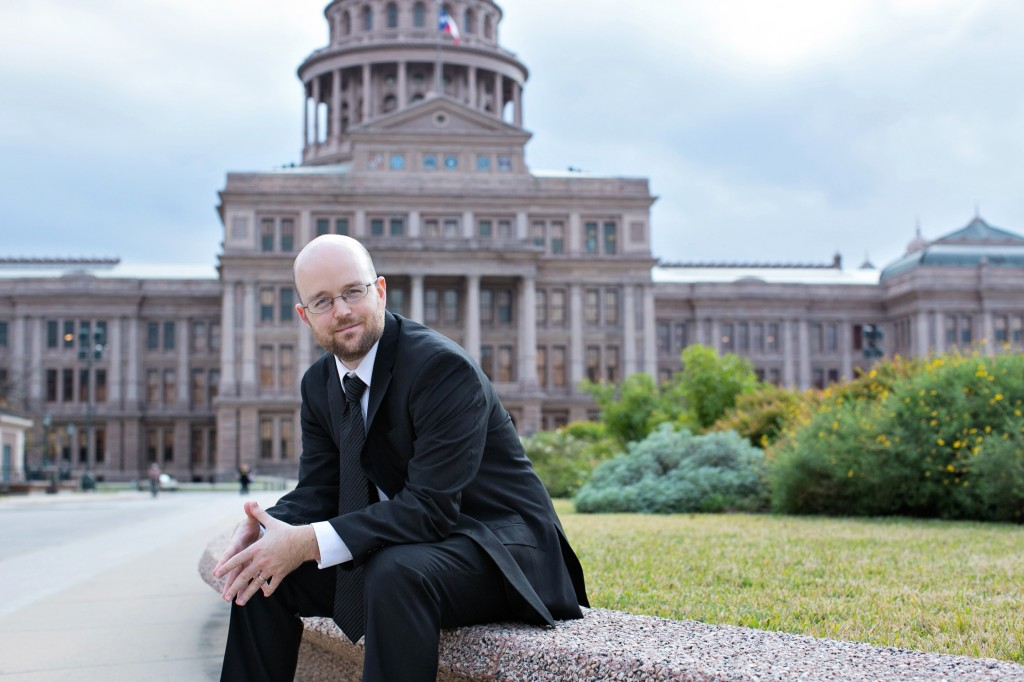Austin Parole Revocation Attorney
Texas Parole Revocation | ATX Legal
Parole Revocation is scary. Whether triggered by a new criminal charge or a technical violation, you’re facing a lot of uncertainty. Will I be picked up on a blue warrant? Will I have to go back to prison? Parole law is hazy and you might not know where to start. It can’t hurt to get a free consultation from an attorney. Fill out a contact form or call 512-677-5003 to speak with an experienced parole lawyer who can answer questions you have at no charge.
What Violations Lead to a Parole Revocation?
There are generally two categories of parole violations: technical violations and substantive violations. Technical violations refer to breaches of the conditions set out in the parole agreement, including failing to report to the parole officer, not maintaining employment, or venturing outside of a set geographical limit.
On the other hand, substantive violations involve the commission of new criminal offenses while on parole. Both types of violations can potentially lead to parole revocation, subjecting the parolee to a return to incarceration.
Technical Violations
Technical violations can vary widely, but they generally fall into a few key categories. Failure to Report is a common violation, which refers to when offenders don’t check in with their parole officer at their scheduled time or date. Curfew violations occur when offenders do not adhere to the stipulated times they are required to be at their residence. Traveling outside of the permitted area without the necessary approval from the PO is another common technical violation.
Additionally, employment violations can happen if the offender fails to maintain stable employment, or does not seek employment as required by their parole conditions. Lastly, drug and alcohol use, which is often prohibited under the terms of parole, can also lead to a technical violation if detected.
New Criminal Charges
New criminal charges, also known as substantive violations, pose a significant threat to a parolee’s status. If an offender is arrested for a new offense, this can result in immediate detention and an expedited hearing.
The burden of proof in these hearings is lower than in a standard criminal trial, meaning that the parolee may be returned to prison based on a lesser degree of evidence. This can occur even if the parolee is ultimately found not guilty of the new charges in a criminal court. If later convicted, the offender may face an additional revocation hearing.
Blue Warrants
Blue warrants come into play when a parolee is suspected of a violation. They function as an arrest warrant for parole violations. Once a blue warrant is issued, the offender is taken into custody to await a revocation hearing. If you get notice of a blue warrant, it can be a good idea to turn yourself in within a reasonable time.
A blue warrant remains in effect until the board withdraws it or until the offender is arrested. In rare cases, it is possible under certain circumstances for a parolee’s attorney to have the blue warrant lifted, allowing the parolee to remain free until the revocation hearing.
Can I be Released while I wait for the Hearing?
The issuance of a blue warrant rests on the discretion of the parole officer. A parole officer has the responsibility to supervise the parolee and ensure they are adhering to the conditions of their parole.
With a blue warrant, bond is not allowed – once issued, the offender is taken into custody. However, the parole officer retains the authority to lift the blue warrant. If the parole officer decides to lift the blue warrant, the parolee can remain free until the revocation hearing. This underscores the immense discretion they hold over a parolee’s fate.
How Long Until I get a Hearing?
The timeline for the revocation hearing process after the issuance of a blue warrant can vary, but generally, you can expect a preliminary hearing within 30 to 41 days. Here the parole board determines whether there is enough evidence to support the alleged parole violation.
In cases involving substantive violations, the procedural guidelines are slightly different. The preliminary hearing should still be held within a window of 41 days, but the final hearing may be delayed with the criminal case plays out. The outcome of this case can significantly influence the decision at the revocation hearing.
Preliminary Hearing vs Final Hearing
The preliminary hearing and the final hearing are two distinct stages in the parole revocation process. The preliminary hearing, which occurs soon after a parole violation is alleged, is to establish whether there is probable cause to believe that a violation has occurred. The offender has the option to waive the preliminary hearing, but it is not always advisable to do so.
On the other hand, at the final hearing, a decision is made on whether to revoke the parole and send the individual back to prison, or to continue with the parole with or without modifications to the conditions.
What Actions Can the Hearing Officer Take?
The hearing officer at a revocation hearing has the authority to make several determinations. If the hearing officer finds that the parolee has violated the terms of their parole, they can recommend the parole board revoke the parole, resulting in the offender being sent back to prison to serve the remainder of their sentence. The revocation decision is ultimately made by a panel of three officers, but relies heavily on the hearing officer’s determinations.
Alternatively, the officer might choose to continue the parole, but with modified conditions that the parolee must adhere to. These modifications could include stricter supervision, mandatory counseling or treatment programs, or other restrictions designed to prevent further violations.
In some cases, the officer may also have the discretion to impose a short term of incarceration, known as a “shock” period in an intermediate sanction facility (ISF), as a punitive measure without fully revoking the parole.
What Evidence Can I bring to Revocation Hearings?
In a revocation hearing, an attorney can bring a variety of evidence to advocate for the offender. This can include testimonies from character witnesses, documents like employment records or therapy attendance logs, and any other material that might challenge the alleged violation or demonstrate the parolee’s efforts to comply with their parole conditions.
Likewise, the offender’s PO can call adverse witnesses and testify on their own behalf regarding parole violators. This flexibility allows for a broad range of evidence to be considered, but it can also make the process more unpredictable for the parolee and their attorney.
Why be Represented by a Parole Attorney?
Unlike in criminal trials, offenders are not entitled to a state-appointed attorney for parole revocation hearings. This means that any legal counsel during these proceedings must be secured at the offender’s own expense.
An experienced parole attorney can often improve the outcome dramatically. They can bring forth beneficial evidence, challenge the allegations, examine witnesses, and advocate persuasively on the behalf of the parolee. Without such representation, offenders may find it difficult to defend their case adequately.
Parole Revocation FAQs
Will I get credit for “street time”?
“Street time”, or time spent free on parole will sometimes count toward your sentence. However, the calculations can be complicated. Speak with a parole lawyer to gain a better understanding of your specific situation.
I have a blue warrant. How can I bond out?
A blue warrant is an arrest warrant issued by the Texas Parole Board. It’s typically issued when a parolee allegedly violates the terms of their parole. Unfortunately, bonding out on a blue warrant is never an option. Once a blue warrant is issued, it usually means you’ll be detained without the chance for bail until your parole revocation hearing.
Will I ever be eligible for parole again?
If your parole is revoked due to a violation, you will often be eligible for early release on parole again. The specifics depend on the terms of your original sentence, the nature of your violation, and the regulations of your jurisdiction. If you become eligible for discretionary mandatory supervision, your odds may increase. Discuss this with your lawyer for a better understanding.
Contact an Austin Tx Parole Attorney
Facing parole complications? Don’t go without an experienced parole lawyer. Contact experienced criminal lawyer Rob Chesnutt for a free consultation. Your freedom is on the line. Fill out a contact form, or call 512-677-5003 for a consultation.


